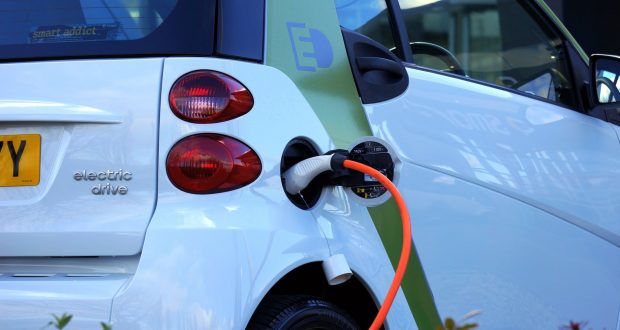Ireland should beat UK to ban of diesel and petrol cars

Ireland should go a step further than the UK, pledging to ban the sale of petrol and diesel cars and vans by 2035, according to a Fine Gael TD.
Dublin North-West representative Noel Rock said Ireland should “aim higher” after the UK Government outlined anti-pollution plans that will outlaw fossil fuel only cars and vans by 2040.
Deputy Rock also urged the Irish Government to announce plans to eliminate sales of high-emissions cars five years earlier than the UK in next budget.
“The UK and France have both pledged to do it by 2040. I believe we should aim higher and do better, and aim to have this done by 2035,” Deputy Rock said.
“The benefits are multiple: it will likely create high-value technology jobs and enhance our green industry here, it will improve our green image abroad, and it will lessen our dependence on the importation of fuel.
“Electric vehicles need a number of things to help them succeed in a country but first and foremost, they need critical mass and enough people to convert to electric vehicles.
“We should be setting down incentives – financial and otherwise – in Budget 2018 in order to kick that process into gear.”
The UK’s announcement followed a similar timeline announced by the French Government.
The announcement comes amid a wave of commercial activity in the electric car market, with Volvo announcing this month it will only make fully electric or hybrid cars from 2019 onwards.
In July, BMW announced it would manufacture an electrically powered Mini in the UK.
The UK government’s plans were outlined in the Air quality plan for nitrogen dioxide policy paper, published on July 26.
Responding to the proposals, the Petrol Retailers Association (PRA) said it welcomed the policy as part of a number of “pragmatic steps” from Minister for the Environment Michael Gove.
The group, which represents UK independent fuel retailers, said the steps did not impose a blanket ban on diesel vehicles across cities and towns or introduce an “unattractive” diesel scrapping scheme.
PRA Chairman Brian Madderson also welcomed that the plan did not include “unfair penalties” on diesel drivers or apply to large vans, HGV’s, motorbikes, tractors and other off-the-road equipment.
However, he added: “We are cautious that the ban on sales of new petrol and diesel cars from 2040 will require massive financial commitment from Government, manufacturers and consumers, without crippling the UK’s economy.
“Currently public transport infrastructure and service is under huge stress, and so a very high proportion of workers commute to their workplace by car. The consumer’s appetite for Electric Vehicles and financial capability to switch must be considered limited.”
Mr Madderson also pointed to a warning from the National Grid earlier this month that there would be insufficient electricity capacity to refuel electric vehicles if there was a sustained surge in demand.
The PRA chief said the power requirements must be taken into account by Government in their strategic planning for energy resilience.
“In the longer term, the Treasury stand to lose up to £20bn of fuel duty and vat tax income every year if retail sales of petrol and diesel evaporate,” he said. “What are their plans for replacing this significant contributor to the national budget? Are Electric Vehicles suddenly going to bear the brunt of the shortfall?
“The Government also has a responsibility to ensure that the performance criteria promoted by competing EV manufacturers is absolutely fair and correct to protect consumers as they consider switching vehicle types. This particularly refers to speed and mileage claims between recharges.
“Finally, the alternative merits of hydrogen fuel cell technology must continue to be properly encouraged.”







